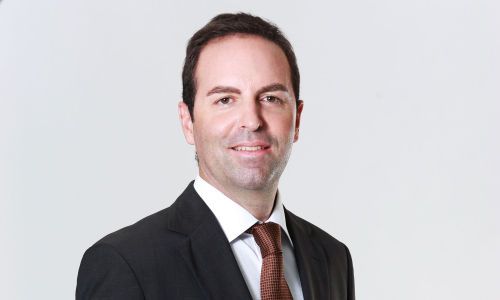The Future for Independent Asset Managers
It seems that the aim of the new regulations in the EU is to strengthen the protection of advisory clients in the financial business, preventing another financial debacle, as we experienced in 2008.
Will there still be small independent External Asset Managers (EAMs) in the future? The experience from MIFID II shows that in general the point «customer information» is given more weight.
For example, instead of a billing document today, three documents are available to the customer. An investment proposal used to have 20 pages, so there are now 100 pages. But does this actually protect the end customer? The future will show.
High Penetration Rate of Asset Management Data
One thing is certain, however: Banks may or may not offer all their products to their customers. This reduces the risk for the bank, but also the customer's product universe. In order to ensure the reporting obligations from the point of view of the bank and the intermediary under the new legislation, all processes must be managed digitally - using interfaces to banks.
EAMs generally have a very high penetration rate of asset management data with their clients which simplifies many regulatory aspects. In addition, the number of support systems, such as portfolio management tools, including reporting, or CRM software, which have already incorporated compliance checks, is increasing rapidly.
Thanks to digital developments, assumptions that smaller asset managers will not survive are not true. Small independent EAMs will need to be more digital and organised than they have been in the past.
Digital Versus Paper
The future in the intermediary business will be hybrid consulting. This means that digital and personal advice go hand in hand, and dossier management on paper is definitely of the past. Digital tools are needed to monitor the regulatory requirements and trigger reports in case of violations.
According to surveys by intermediaries a few years ago, the number of custodian banks with which an asset manager maintains relationships should be reduced. However, in most cases this has not happened yet. With the ever-increasing digitisation of processes and the need for monitoring, we believe that asset managers will stick to the banks offering such digital interfaces.
VP Bank has already decided to take this step in 2017, enabling a standardised bidirectional exchange of orders and documents.
The Future of EAMs
What makes a wealth manager successful? Certainly, the basic knowledge and the processes in the company must be designed efficiently, either digitally and / or with cooperation partners. The target is to rediscover the passion of asset management - the core business. Personal relationships and time for mutual development with the customer, coupled with an exciting range of offers will be the key elements.
Margins will decline - due to the price sensitivity of the successor generation as well as higher IT and regulatory costs. Thus, it is important to do continuous homework until the introduction of new requirements. The following questions must be answered:
- Which customers do I have and would I like to acquire?
- Which IT landscape do I have and where can I automate / optimise?
- Which investment products do I offer or do I have to offer?
- Which cooperation partners do I have and do I need?
- Which custodians do I have and how do they support me?
Founded by an intermediary, VP Bank is very close to current events. Thanks to its many years of experience in the intermediary business, the bank offers first-class service with a high degree of flexibility.
Sylvain Gysler is Head Intermediaries at VP Bank Ltd Singapore Branch. This email address is being protected from spambots. You need JavaScript enabled to view it.Views expressed above are the author’s own views and should not be taken as a representation of the bank’s official position on any legal or regulatory matter.
Facts & Figures VP Bank Group
VP Bank Ltd was founded in 1956 and is one of the largest banks in Liechtenstein with 892 employees at mid-year 2018 (full-time equivalent 828). It currently has offices in Vaduz, Zurich, Luxembourg, Singapore, Hong Kong and Road Town on the British Virgin Islands. VP Bank Group offers bespoke asset management and investment consultancy for private individuals and intermediaries. Due to the open architecture, clients benefit from independent advice: The products and services of leading financial institutions as well as in-house investment solutions are included in client recommendations. VP Bank is listed on the Swiss stock exchange SIX, and has an "A" rating from Standard & Poor’s. The bank has a sound balance sheet and capital base. Its anchor shareholders take a long-term view, guaranteeing continuity, independence as well as sustainability.
Facts & Figures - VP Bank Ltd Singapore Branch
VP Bank Ltd Singapore Branch is a boutique private bank with a client-centric business philosophy and with more than 60 employees. VP Bank Ltd Singapore Branch provides specialised wealth management solutions and family office services for high-net-worth clients and professional asset managers.
VP Bank Ltd Singapore Branch is dedicated to the protection and growth of clients’ wealth. The bank offers a holistic suite of services and advisory, not just in wealth management, but also in inheritance planning, structuring of trusts and foundations, as well as art and philanthropy. Apart from private wealth management, VP Bank Ltd Singapore Branch provides comprehensive services for asset managers and other financial intermediaries. The service offering comprises a trading platform, banking services including ebanking and mobile banking and operational support. Partnership arrangements with professionals include tailor-made investment advisory, discretionary management solutions and custodian services.












